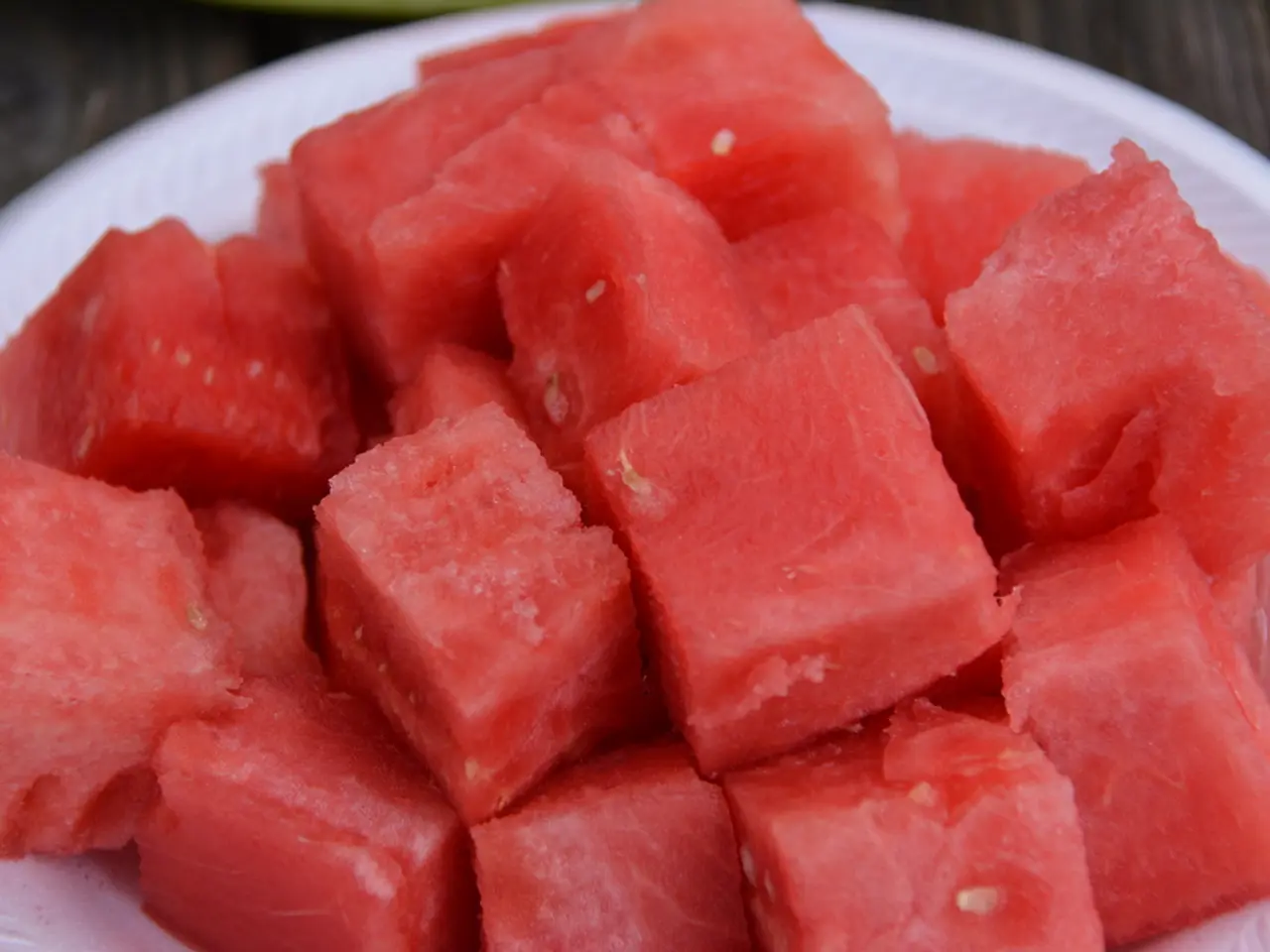Reusing Plastic Freezer and Sandwich Bags: A Comprehensive Guide
Can Plastic Freezer and Sandwich Bags Be Repurposed?
Getting sick from reused plastic bags is a legitimate concern, but with proper cleaning and inspection, they can be repurposed efficiently. Here's what to keep in mind when extending the life of your plastic bags.
Food Safety Experts Weigh In
Reducing plastic waste starts at home, and plastic food storage bags are no exception. Let's hear from some experts on how to reuse them safely:
- Carla L. Schwan, Ph.D., assistant professor and extension food safety specialist director at the National Center for Home Food Preservation.
- Tracey Brigman, EdD, MS, RDN, LD, clinical associate professor, and associate director for the National Center for Home Food Preservation at the University of Georgia.
So, Can You Reuse a Plastic Freezer or Sandwich Bag?
Reusing plastic bags is generally safe, but it depends on the contents and the bag's condition. According to Carla L. Schwan, PHD, you should only reuse bags that have stored dry goods such as baked products, cookie dough, grains, or nuts (provided they're not allergen-triggering).
When to Reuse a Plastic Bag
Take note of the following instances when it's appropriate to reuse your plastic bags:
- The bag has held safe, dry goods such as baked products, cookie dough, grains, or nuts, excluding allergen-triggering foods.
- The bag is clean, dry, and free of damage or visible signs of mold or residue.
When Not to Reuse a Plastic Bag
Avoid reusing these types of bags:
- Bags that held raw meat, fish, eggs, or allergy-triggering foods.
- Bags with visible signs of mold or yeast growth.
- Bags with any damage, such as holes, tears, or punctures.
How Many Times Can You Reuse a Plastic Bag?
The lifespan of a reusable plastic bag depends on the material, cleaning, and reusing methods, as well as the initial contents. Always inspect the bag for signs of wear or damage before using.
Washing Plastic Bags Correctly
Before reusing a plastic bag:
- Wash it by hand using soap and warm water. Clean the inside and outside, paying particular attention to the seams.
- Avoid turning the bag inside out during washing as this may damage it.
- Air dry the bag completely. If necessary, you can turn it inside out to ensure the inside dries.
- Inspect the bag for any holes, tears, punctures, staining, or lingering odors before using it again. If you find any issues, discard the bag.
Whether you use reusable bags frequently or occasionally, here's to fuss-free food storage and a greener, safer kitchen. Happy re-bagging!
Enrichment Data:
Reducing plastic waste doesn't have to compromise your food safety. Follow these steps to ensure your reusable bags are both environmentally friendly and hygienic:
- Select Bags: Opt for bags that have held dry, non-perishable items such as snacks or hard candies. Stay away from bags that have contained raw meat, fish, eggs, or potential allergens, as they may harbor bacteria or pathogens.
- Clean the Bag: Wash the bag by hand using soap and warm water, cleaning both the inside and outside, particularly the seams. Avoid turning the bag inside out during washing, as this can weaken it.
- Dry the Bag: Air dry the bag until it's completely dry, turning it inside out if necessary to ensure the inside dries completely.
- Inspect Before Use: Check the bag for any holes, tears, punctures, staining, or lingering odors before reusing. If you find any issues, discard the bag.
- Use Safe Contents: Utilize the reused bag for storing dry, non-perishable items. Avoid placing raw meat, fish, eggs, or other items that could produce moisture or bacteria inside the bag.
- Limit Re-Uses: Replace the bag when you notice it begins to degrade or show signs of wear.
By following these steps, you can help minimize your plastic waste while prioritizing food safety.
- With proper cleaning and inspection, plastic freezer and sandwich bags can be effectively repurposed.
- In the realm of reusing plastic food storage bags, arguments for reducing plastic waste are as plausible as concerns for food safety.
- Martha Stewart might suggest investigating DIY cooking techniques for reusing plastic bags, but safety should be the priority.
- For food storage solutions that align with a greener lifestyle and food-and-drink preferences, reusing plastic bags can be an adequate choice.
- When it comes to home-and-garden practices, reusing plastic freezer and sandwich bags might be considered, provided they are cleaned and inspected thoroughly.
- When dealing with allergen concerns, it's best to avoid reusing plastic bags that have previously held allergy-triggering foods.








